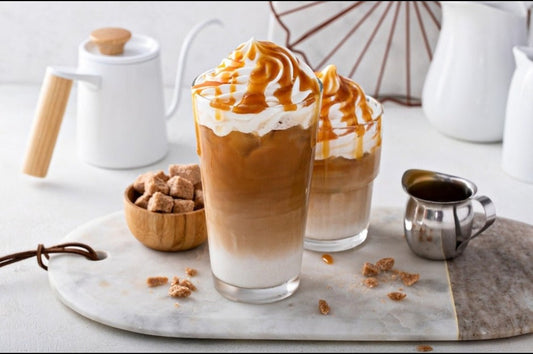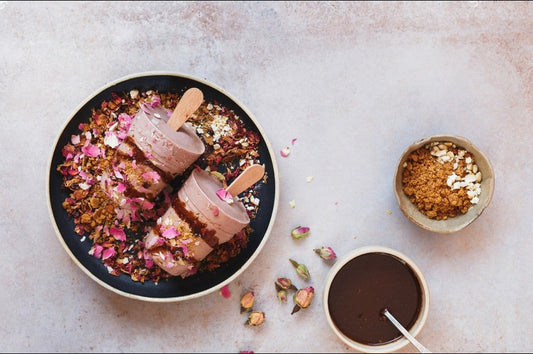
The History of Perfumes in Indian Traditions: From Ancient Rituals to Modern Karwa Chauth ft. WPC Sunkissed
India’s rich cultural tapestry is woven with countless traditions, and among these, the use of perfumes and fragrances has played a significant role throughout history. Perfume, or "ittar," has been more than just a cosmetic indulgence; it has been an integral part of rituals, religious ceremonies, and personal grooming, symbolizing purity, sensuality, and divinity. From the ancient Vedic era to modern celebrations like Karwa Chauth, perfumes continue to hold a special place in Indian traditions.
In this blog, we’ll explore the journey of perfumes in India—from their sacred beginnings in ancient rituals to their romantic role in modern traditions like Karwa Chauth. We'll also introduce the modern-day perfume WPC Sunkissed and how it perfectly complements the spirit of today’s Karwa Chauth celebrations.
Ancient Roots: Perfumes in the Vedic Era
Perfumes in India have a deep-rooted history that dates back thousands of years. In the Vedic era, fragrant substances were considered sacred and were used in religious ceremonies and spiritual practices. References to aromatic plants, essential oils, and incenses can be found in the ancient texts of the Vedas, where fragrances were believed to purify the mind, body, and soul. Fragrances like sandalwood, frankincense, myrrh, and camphor were commonly used in offerings to deities, and temples were often filled with the scent of burning incense as a way to cleanse the space and invite the divine presence.
The art of distilling essential oils was said to have originated in India, and ancient methods of extraction from flowers, herbs, and roots laid the foundation for modern perfumery. The use of perfumes wasn’t limited to religious rituals; it was also a significant part of daily life, where people would anoint their bodies with fragrant oils and flowers as part of their grooming routines. Perfumes symbolized luxury, power, and prestige, often associated with royalty and the upper class.
Mughal Era: The Rise of Ittar
The Mughal era saw the art of perfumery flourish in India. The Mughals were known for their love of luxury, and perfumes were a significant part of their cultural expression. Emperor Akbar’s fascination with fragrances was so deep that he had an entire department dedicated to creating ittar (natural perfumes derived from botanical sources) in his royal court. Ittar was not only used for personal grooming but also for scenting clothes, hair, and even the air, with fountains in Mughal gardens spraying scented water.
The Mughals introduced intricate methods of distillation, using sandalwood as a base and infusing it with various flowers like jasmine, rose, and marigold. These natural perfumes became symbols of luxury and were often exchanged as gifts among the nobility. The royal women of the Mughal court, too, were known for their fondness for perfumes, using ittar to enhance their beauty and presence. This tradition of gifting perfumes continues in India today, symbolizing love, respect, and thoughtfulness.
Perfumes and Spirituality
Perfumes have long been associated with spirituality and healing in Indian culture. Essential oils and fragrant herbs have been used in Ayurveda, India’s ancient healing system, for thousands of years. Ayurvedic practitioners believed that certain scents could influence mental and emotional states, using them to promote relaxation, meditation, and healing.
Sandalwood, in particular, has a profound spiritual significance in India. Often used during meditation and religious rituals, it is believed to calm the mind and enhance spiritual awareness. The cooling and calming properties of sandalwood made it a favorite in ancient India, with its use extending to everything from religious ceremonies to skincare.
Perfumes in Festivals and Celebrations
Perfumes are not only used in spiritual and daily life but also play a vital role in Indian festivals and celebrations. Whether it’s the soothing fragrance of sandalwood during Diwali, the heady scent of rose during Holi, or the refreshing aroma of jasmine during Durga Puja, perfumes are deeply woven into the fabric of Indian festivals. They evoke emotions, create memories, and enhance the festive atmosphere.
Karwa Chauth: The Modern Celebration
Fast forward to today, and perfumes continue to be an essential part of Indian celebrations, including the beloved festival of Karwa Chauth. Celebrated by married women, Karwa Chauth is a day dedicated to fasting and prayer for the long life and well-being of their husbands. It’s a day filled with rituals, tradition, and love, where women adorn themselves in their finest clothes, jewelry, and, of course, perfumes.
The tradition of beautifying oneself on Karwa Chauth is centuries old, but today’s modern women blend tradition with contemporary touches. Perfumes have become an essential part of this celebration, with women choosing fragrances that not only make them feel special but also enhance the romantic ambiance of the day. A perfume is not just an accessory—it’s a personal statement of love and elegance, and it adds to the romantic essence of the festival.
WPC Sunkissed: The Perfect Perfume for Karwa Chauth
As the rituals of Karwa Chauth evolve with modern sensibilities, so do the choices of fragrances. WPC Sunkissed, a modern and sophisticated perfume, is an ideal choice for women who want to celebrate tradition with a touch of contemporary elegance. Its warm, floral, and fresh notes capture the essence of love, devotion, and beauty—perfect for a day that is all about celebrating the bond between husband and wife.
The top notes of WPC Sunkissed offer a burst of refreshing citrus and florals, symbolizing the vitality and energy of the modern woman. The heart notes of soft florals and spices evoke romance, while the base notes of musk and sandalwood ground the fragrance in warmth and sensuality—making it a fitting companion for the intimate and romantic vibe of Karwa Chauth.
This perfume doesn’t just elevate your Karwa Chauth look; it also brings an air of grace and sophistication to any occasion, making it a perfect addition to your fragrance collection all year round.
Perfumes: A Bridge Between Tradition and Modernity
In many ways, perfumes like WPC Sunkissed bridge the gap between ancient traditions and modern sensibilities. Just as fragrances were used in ancient India to signify devotion, luxury, and spirituality, today they continue to serve as expressions of personal identity, beauty, and love. The use of perfumes during festivals like Karwa Chauth ties us back to our cultural roots while allowing us to express our individuality in new and exciting ways.
Embrace the Tradition, Celebrate the Modern
As we celebrate modern festivals, we are, in many ways, continuing the age-old traditions of India’s fragrant past. The perfumes we wear on special occasions like Karwa Chauth are part of a long, beautiful history that has evolved with time, yet remains a symbol of love, devotion, and celebration.
If you’re looking to add an extra touch of elegance to your Karwa Chauth celebrations, WPC Sunkissed is the perfect choice. Its delicate balance of floral and sensual notes embodies the spirit of this special day, making it a must-have in your collection.
Ready to make WPC Sunkissed a part of your Karwa Chauth tradition?
You can buy WPC Sunkissed at an exclusive 30% off on pluuginstore.com. Celebrate love, tradition, and modern elegance with a fragrance that’s as timeless as your devotion.
Continue reading
View all-

The Twin Temptation: Bakers Frappe Powder for Your Cafe-at-Home Moments
Are you tired of spending a fortune at coffee shops to get that perfect frappe? What if you could recreate that creamy, smooth, and delicious experience right in your own...
The Twin Temptation: Bakers Frappe Powder for Your Cafe-at-Home Moments
Are you tired of spending a fortune at coffee shops to get that perfect frappe? What if you could recreate that creamy, smooth, and delicious experience right in your own...
-

Spice Up Your Plate: The Golden Touch of Puress Cold Pressed Mustard Oil!
Puress Cold Pressed Mustard Oil can transform a dish with its unique flavor profile. Try it now!
Spice Up Your Plate: The Golden Touch of Puress Cold Pressed Mustard Oil!
Puress Cold Pressed Mustard Oil can transform a dish with its unique flavor profile. Try it now!
-





